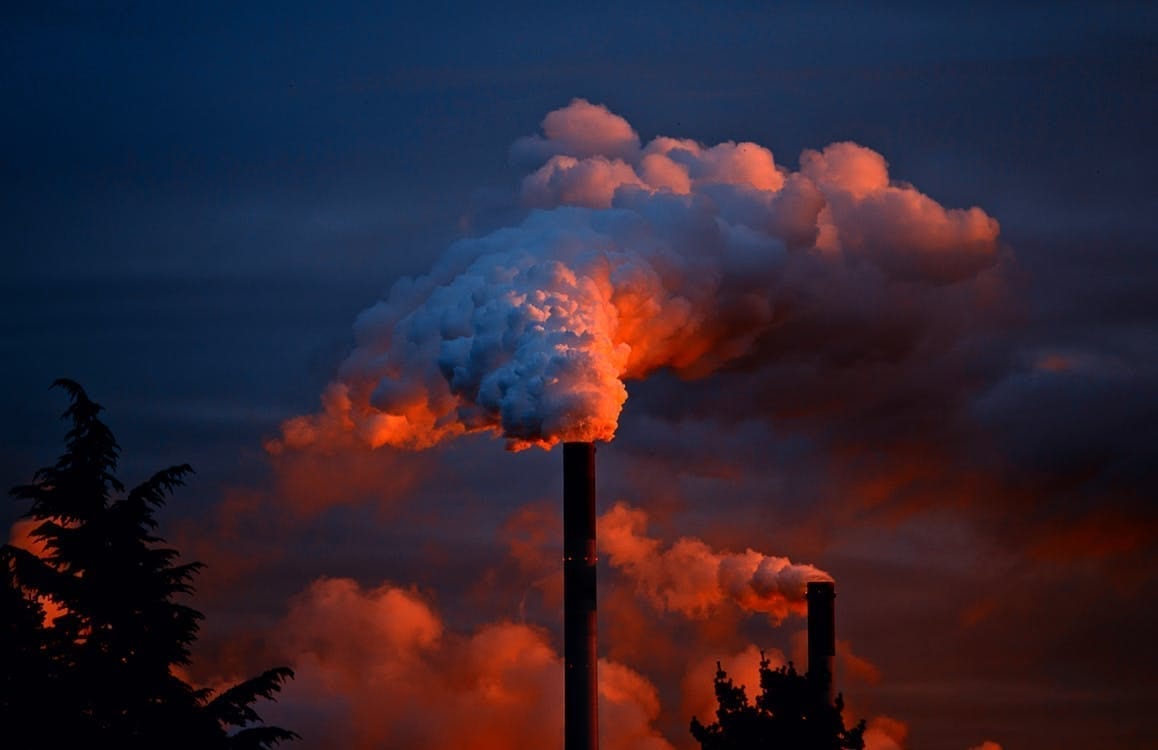A study released this month by the Carbon Disclosure Project (CDP) and the Climate Accountability Institute claims that 71% of the greenhouse gases released since 1988 were the output of a mere 100 companies. Out of those 100 companies, a slim 25 were responsible for half of the world’s total greenhouse gas pollution in that same time period.
A study released this month by the Carbon Disclosure Project (CDP) and the Climate Accountability Institute claims that 71% of the greenhouse gases released since 1988 were the output of a mere 100 companies. Out of those 100 companies, a slim 25 were responsible for half of the world’s total greenhouse gas pollution in that same time period.
Staggering!
But is it relevant? Maybe, maybe not.
The overwhelming consensus among climate scientists is that human actions are causing the climate to change in ways that will imperil our continued existence. How this will play out is a matter of some speculation, but by all accounts, maintaining the status quo is dangerous and irresponsible. Corporations like Shell (one of the 100 companies listed in the study) knew this decades ago. They even made a short film about climate change for students in 1991.
ExxonMobil, also on the list of 100 companies, knew too. As early as 1977, when the rest of us were watching Star Wars, wearing polyester slacks and listening to President Jimmy Carter talk about reducing our oil consumption, Exxon’s management committee heard a talk by their senior scientist at the time, James Black. According to Scientific American, Black warned Exxon’s bigwigs that even then, the scientific community largely agreed that carbon dioxide released from burning fossil fuels would change the climate, and a year later he warned them that doubling the CO2 in the atmosphere would raise the average global temperature by 2 to 3 degrees. Exxon went on to spend millions funding climate denial and doubt.
What Exxon Knew, posted by YaleClimateConnections
Of course, once Jimmy Carter and his White House rooftop solar panels were voted out of office for Ronald Reagan and the promise that we could not only maintain our prodigious level of energy consumption but even increase it, we passed the moment when we could have, with elbow grease, dedication, and American ingenuity, avoided the worst of the changes in store for us and our children. Nobody really wanted to hear about conservation, especially not conservatives. Over on the mainstream Left, the concentration on social justice and economic growth as a way of raising people out of poverty derailed any chance of having important conversations about wise resource use.
The churn of the last four decades of political and economic history put us where we are today. We’re starting to reap the effects of the whirlwind sowed by our parents and grandparents. Even as these 100 companies prosper, unvarnished pieces about the possible-to-likely effects of climate change grace the pages of mainstream publications like New York Magazine. Other voices are quick to talk back, though, assuring dubious or emotionally fragile people that no, it’s not really that bad. And even if it is, well, it’s only about 100 companies that are putting our future in peril. Not me. Not you. Never us.
Unfortunately, those 100 companies don’t exist in a vacuum. They keep doing their thing because we encourage them to do so. The first way we egg them on is with our dollars, when we trade our time and our life’s energy for the products they sell, products we deem necessary to our way of life. The second way we enable them is by voting for representatives in government who advance policies allowing companies to externalize the costs of doing business right onto our shoulders. (For example, consider how the EPA, under the new administration, considers it their mission to protect the ability of companies to pollute, rather than protecting the environment or the people who live in it.)
There are still choices to be made. While a destabilized climate is baked into the cake at this point, individuals and communities can still take action with the time and resources we have left to ease our transition into the future that’s coming. Or, we can use findings like this list of 100 companies to absolve ourselves of any culpability even as we hope technology will save us, because we really, really want it to. The 100 companies won’t mind either way. Once the torches and pitchforks of real change come for them, they’ll be in the bunkers they built with your money.
The rest of us, though, will have to learn to rely on ourselves. The helpful people at Authorized Boots have some excellent suggestions on just how to survive potentially turbulent times.


Join the conversation!